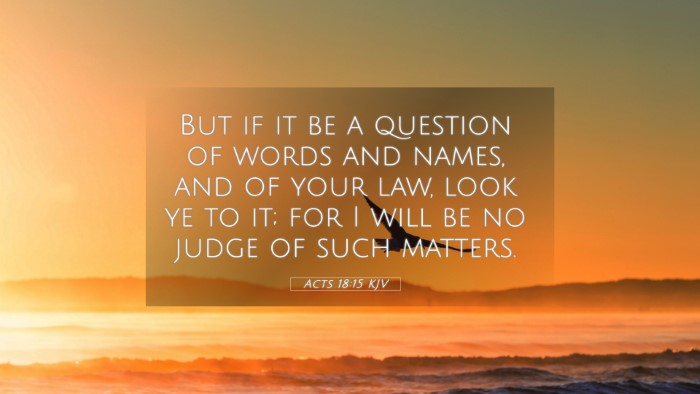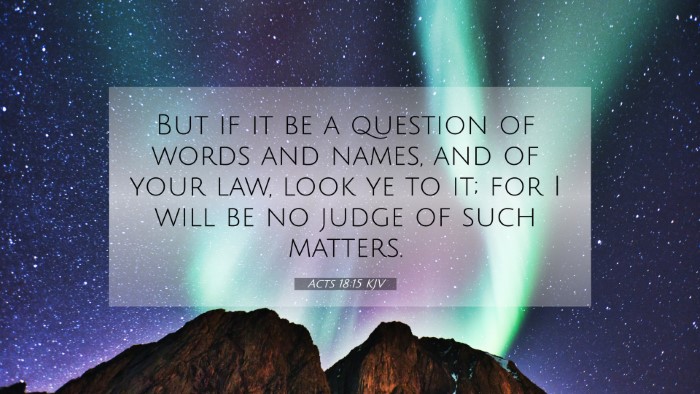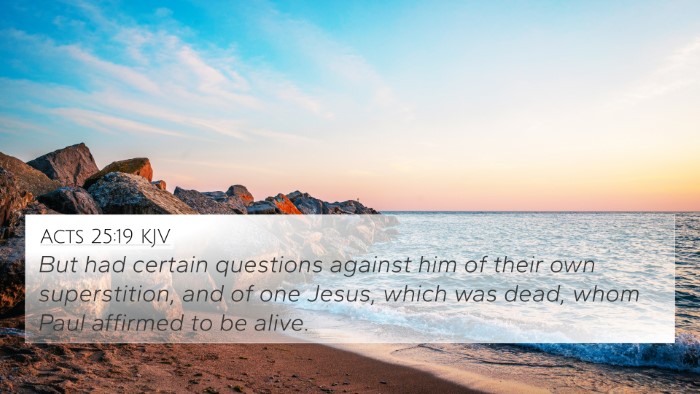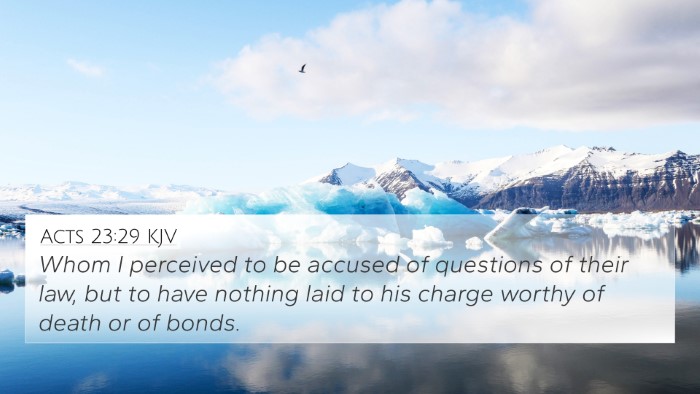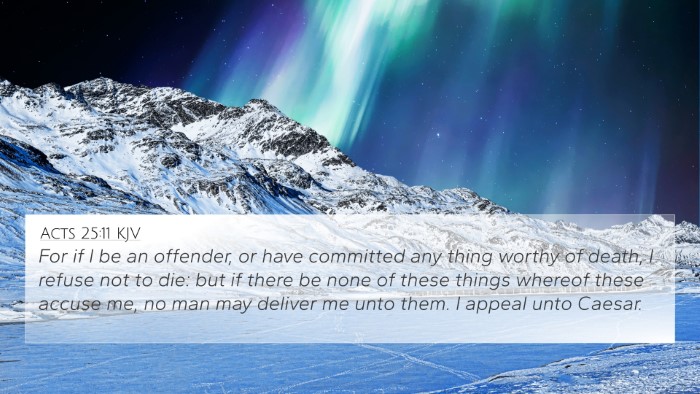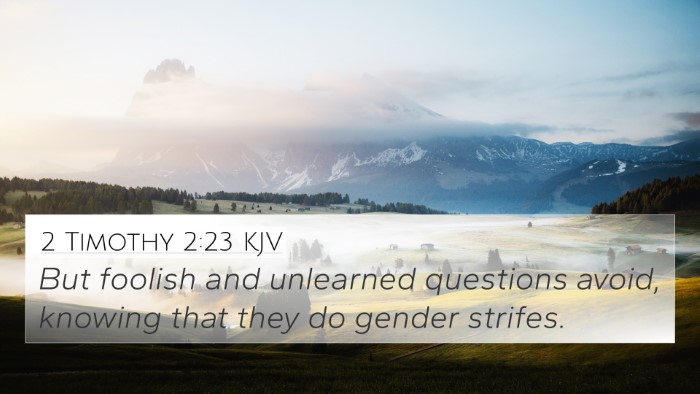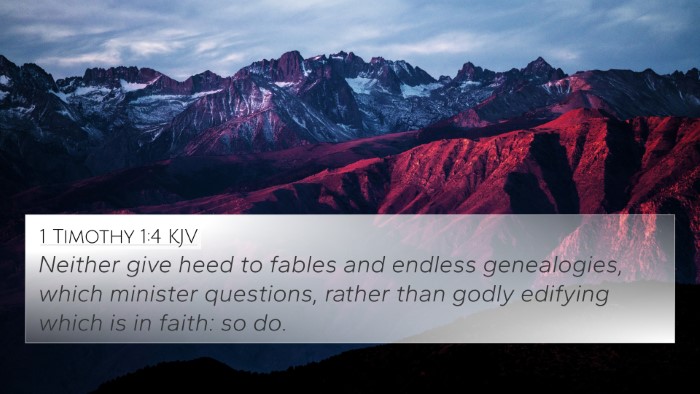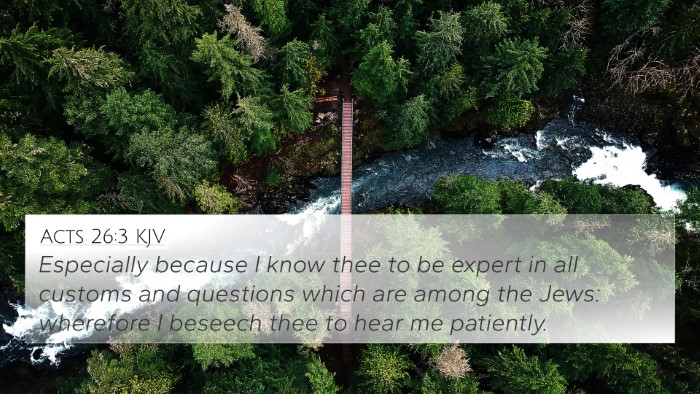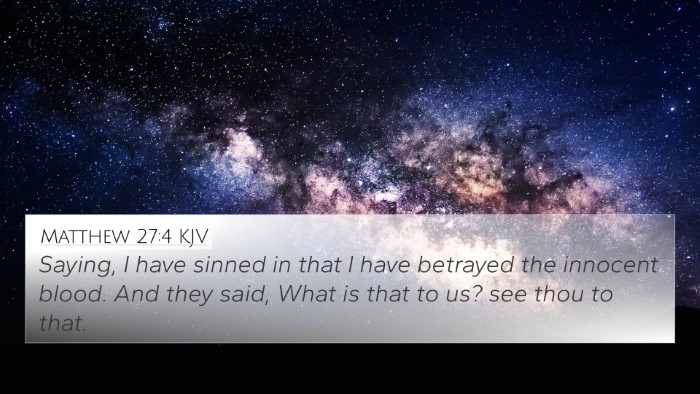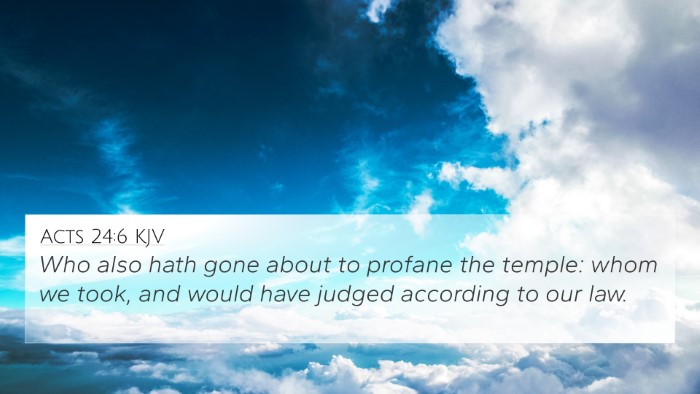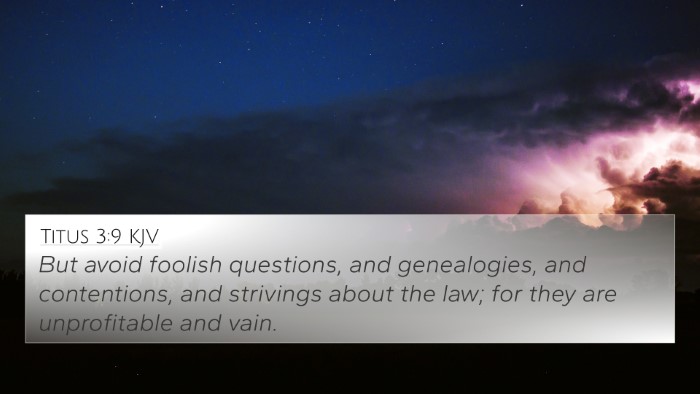Understanding Acts 18:15
Acts 18:15 states: "But if it be a question of words and names, and of your law, look ye to it; for I will be no judge of such matters." This verse is a pivotal moment in the book of Acts where the Apostle Paul encounters opposition and is brought before the judgment seat. The interpretation of this verse reveals key aspects of the legal and cultural dynamics of the early Christian church.
Historical Context
The verse takes place in the city of Corinth, where Paul is ministering. In this context, we see Galio, the proconsul of Achaea, addressing a matter that pertains to Jewish law and internal disputes, rather than civil law. This highlights the challenge early Christians faced as they navigated their faith within the broader Roman legal system.
Insights from Public Domain Commentaries
Matthew Henry's Commentary
Matthew Henry notes that Galio recognized the frivolous nature of the accusations against Paul, seeing them as mere disputes over religious interpretations rather than serious legal matters. Henry emphasizes the wisdom of Galio in his refusal to involve himself in the religious squabbles of the Jews, interpreting this as divine protection for Paul.
Albert Barnes' Notes
Albert Barnes highlights the significance of Galio’s statement, indicating that it reflects a broader understanding of religious freedom under Roman law. Barnes discusses how the early Christians were often brought into conflict with Jewish authorities but were not always subject to Roman prosecution for matters of religious belief.
Adam Clarke's Commentary
Adam Clarke expands on the implications of Galio's judgment, suggesting that it indicates a shift in the Roman stance towards Christianity. Clarke points out that this incident exemplifies a moment of divine providence whereby God uses earthly powers to protect His servants from unjust persecution.
Thematic Connections
Acts 18:15 serves as a profound example of the intersection of Faith and civil authority. It raises important questions regarding religious liberty, the role of government in religious matters, and the early church's relationship with Judaism and Rome.
Bible Cross-References
This verse is connected to several other scripture references which can be explored for deeper understanding:
- Matthew 10:18 - Jesus foretells that the disciples will be brought before governors and kings as witnesses.
- Acts 5:29 - Peter emphasizes the importance of obeying God rather than human authorities.
- Acts 4:19 - Peter and John respond to the officials, stating that they cannot stop speaking of what they have seen and heard.
- 1 Peter 2:13-14 - Instructions for submission to governing authorities for the Lord's sake.
- Romans 13:1 - A discourse on submitting to governing authorities as instituted by God.
- John 18:36 - Jesus clarifies the nature of His kingdom as not of this world.
- Galatians 5:1 - A call to stand firm in freedom and not to be burdened again by a yoke of slavery.
Inter-Biblical Dialogue
The connections between Acts 18:15 and other biblical passages illustrate ongoing themes of faith, authority, and conscience. By examining these verses collectively, readers can better understand the trials of early Christians and the challenges they faced in proclaiming the gospel amidst opposition.
Methods for Cross-Referencing in the Bible
To study the links between scripture, believers should consider the following tools:
- Bible Concordance: Use a concordance to find keywords related to Acts 18:15.
- Bible Cross-Reference Guide: Leverage guides that highlight connections between passages.
- Cross-Reference Bible Study: Engage in study methods that focus on relational scripture analysis.
- Bible Reference Resources: Utilize resources that include commentary and thematic connections.
Conclusion
Acts 18:15 provides insight into the dynamics of early church life, the role of civil government, and the nature of faith in opposition. Understanding this verse within its context and through its cross-references enriches one's comprehension of the scriptural narrative and encourages deeper exploration of the themes of faith, authority, and divine providence. By actively engaging with cross-referencing methods, believers can find connections that enhance their faith journey and sermon preparation.

